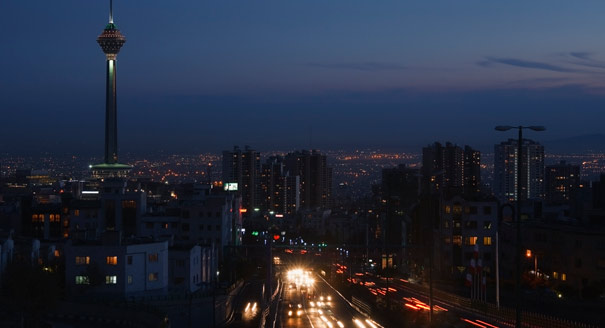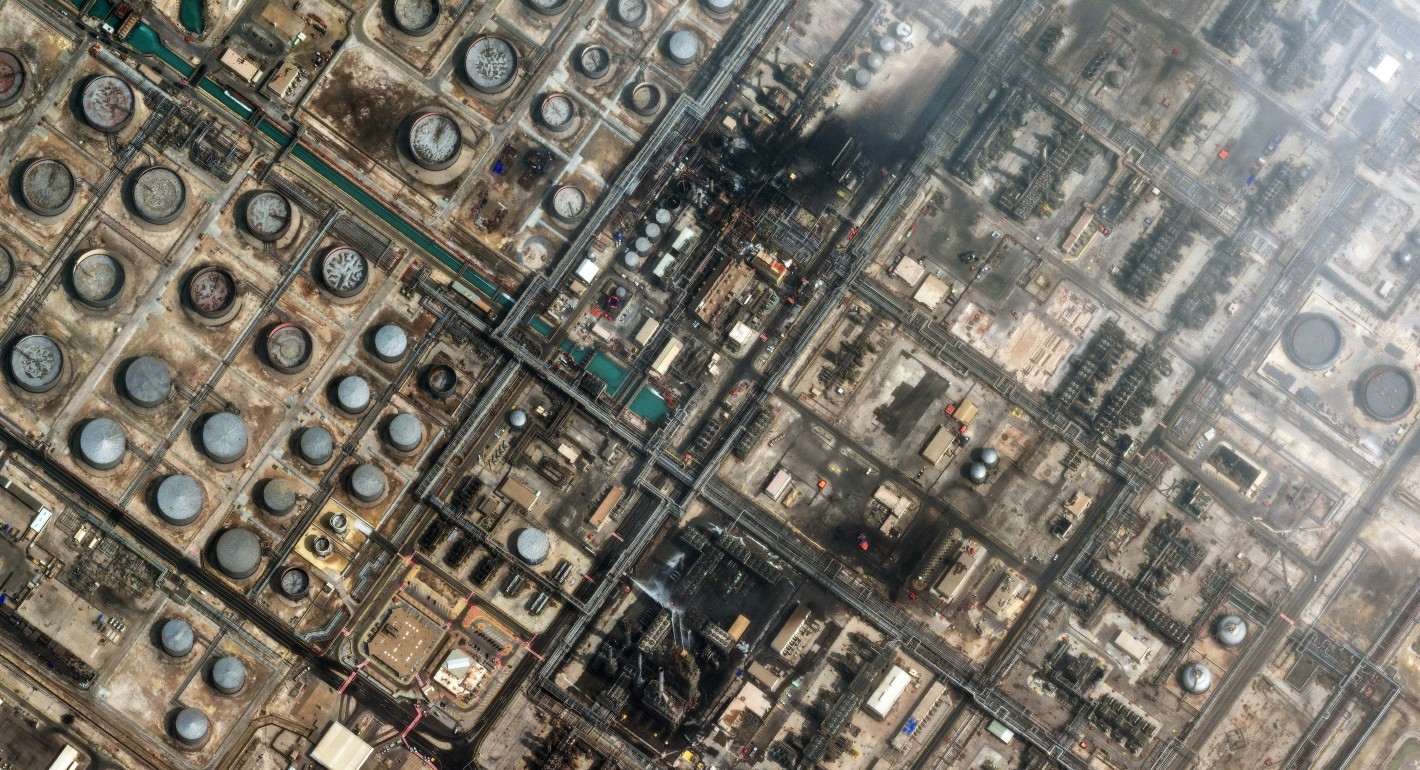George Perkovich
{
"authors": [
"George Perkovich"
],
"type": "questionAnswer",
"centerAffiliationAll": "dc",
"centers": [
"Carnegie Endowment for International Peace",
"Malcolm H. Kerr Carnegie Middle East Center"
],
"collections": [
"Iranian Proliferation"
],
"englishNewsletterAll": "",
"nonEnglishNewsletterAll": "",
"primaryCenter": "Carnegie Endowment for International Peace",
"programAffiliation": "NPP",
"programs": [
"Nuclear Policy"
],
"projects": [],
"regions": [
"Middle East",
"Iran",
"Israel"
],
"topics": [
"Political Reform",
"Security",
"Foreign Policy",
"Nuclear Policy"
]
}
Source: Getty
Down to the Wire With Iran
It’s easy to forget just how remarkable the nuclear talks with Iran are and that there is no better alternative to the current approach.
The deadline for finalizing the outline of a nuclear deal with Iran is fast approaching. As negotiators work to close the remaining gaps, critics of the agreement are voicing their complaints, including a high-profile speech by Israeli Prime Minister Benjamin Netanyahu to the U.S. Congress on March 3, 2015.
In a Q&A, George Perkovich analyzes what is known about the negotiations and the components of a deal so far. Perkovich says it’s easy to forget just how remarkable these talks are and that there is no better alternative to the current approach.
- How are the nuclear negotiations with Iran progressing? Does U.S. President Barack Obama’s administration have the right approach?
- What do we know about the specifics of the deal so far?
- How important was Netanyahu’s speech to the U.S. Congress? Was it a good idea?
- Why is Israel so worried about Iran getting the bomb when it has a sophisticated nuclear arsenal of its own?
- If a political framework agreement is reached this month, what happens next? And what happens if a deal isn’t reached?
How are the nuclear negotiations with Iran progressing? Does U.S. President Barack Obama’s administration have the right approach?
The negotiations have been so lengthy and arduous, it’s easy to forget how remarkable they’ve been. The United States and Iran basically had no diplomatic relations from 1979 until two years ago, when the two countries began secret talks in Oman. Now, the U.S. secretary of state and the Iranian foreign minister meet regularly, text back and forth, and talk on the phone. The president has talked with Iran’s president.As these things go, this was a big historic development. Also, the way the talks have been conducted is remarkable—neither side has leaked information or trashed the other and it has been an exceptionally serious, professional undertaking.
None of this solves the nuclear problem, of course, but it’s important. As for solutions, there has been significant progress. The interim agreement reached in November 2013 essentially froze the most troubling elements of Iran’s nuclear program. This has remained the case since then. Though Netanyahu said at the time that this was the worst deal of the century, his own government soon admitted that this was not the case and that the interim agreement did improve security.
Now the challenge is to go further and reach a long-term comprehensive solution. This is more difficult, because Washington and its partners are asking the Iranians to do more, and the Iranians are asking for more. There are powerful elements in Iran who think the United States will not deliver on any bargain, just as there are powerful elements in the United States who think Iran will not deliver.
But nothing is being lost in trying to build on the interim agreement and reach a longer-term deal that would significantly boost confidence that Iran will not decide to seek nuclear weapons—and that if it does, the international community would detect it and have roughly one year to act to prevent it, including by using force. The other key countries required to keep pressure on Iran would continue to follow America’s leadership because they would see that the United States really wants a diplomatic solution.
There is no better alternative to this approach. Period.
What do we know about the specifics of the deal so far?
I don’t think we know many of the specifics. There is reason to believe there is a sound solution to make sure the Arak reactor cannot be used to produce plutonium for a bomb. That’s important and underappreciated. Indeed, several years ago, Israelis and others argued that this reactor posed a great proliferation threat. We also have some sense that the duration of an agreement would be from ten to fifteen years. That’s a lot more time than you would get if you bombed Iran’s nuclear program.
There are lots of hints, but little real detail, on how much enrichment capability Iran would retain, so it’s hard to say. Details about the inspections and monitoring provisions have also not been released, which will be incredibly important. And from Iran’s point of view, which is never talked about in Washington or Israel, there are no details on when and how the country would get relief from sanctions. How would the Iranians be assured that the U.S. Congress would cooperate in relieving sanctions, which would be required in any deal?
So, notwithstanding all the discussion and speculation around the world, we don’t know that much about where the negotiations are.
How important was Netanyahu’s speech to the U.S. Congress? Was it a good idea?
He’s doing his job as he sees it. But he has no alternative solution for dealing with the Iranian challenge. It’s easy to design a better deal that would give the United States and its allies everything they want—the problem is getting the other side to agree to it. And what Netanyahu wants, which would be ideal from a nonproliferation perspective, no one can get the Iranians to accept.
So, the only logical alternative would be to physically force the Iranians to change course. That’s another way of saying war. But most people who analyze the idea of bombing Iran to stop its nuclear program conclude that it would start a long-term war with the biggest, most resourceful country in the region and it would set back the nuclear program for only about three years—after which the Iranians could go hell-bent for nuclear weapons without international inspectors and without the sanctions that have been so effective. The rest of the world would end sanctions on Iran to protest an Israeli or U.S. attack if it came after a feasible deal with Iran was rejected.
There are a surprising number of former Israeli military and intelligence leaders who agree that the prime minister is mishandling this issue in many ways. Indeed, it is peculiar how much deference is being given in the U.S. Congress to a prime minister who does not have a great track record in resolving conflicts. He has not resolved fundamental differences with any of Israel’s neighbors, or even within his own country.
But if Netanyahu wins reelection in the March 17 vote, then he will have reason to think the speech was a good idea. For Israel and the United States, however, the unprecedented partisanship behind this address will tarnish the shine of the relationship. In a sense, just as many Americans bemoan the extremism and partisanship that is making the United States harder to govern effectively, the current Israeli leadership reflects a similar style, which makes it harder for the United States and Israel to work constructively together (and they must on a whole range of challenges).
Why is Israel so worried about Iran getting the bomb when it has a sophisticated nuclear arsenal of its own?
This is a good question that is rarely asked. Like any nuclear-armed state, Israel would rather have a monopoly on these weapons, at least in its region. Indeed, Israel wisely prefers not to even acknowledge that it has nuclear weapons, which makes it easier for neighboring states to not feel like they must have these weapons too.
Losing a regional monopoly would make it more likely Israel would feel the need to become overt about its own deterrent, which in turn could complicate regional dynamics. So, for political and strategic reasons, even if Israeli leaders have confidence in their own nuclear arsenal’s power to deter, they naturally would rather not have to deter a nuclear adversary.
There is a deeper issue. Netanyahu suggests that Iranian leaders are so wildly revolutionary and violent that they could not be deterred. He probably believes this, but he needs other people to share this belief in order to make the argument that Iran must be left with no nuclear capability as long as it has something like its current government. Things get murky here: the Iranian government does loathsome and threatening things, but pointing out that a regime is odious is not the same as demonstrating that it is not deterrable.
If you examine the history of the Iranian leadership over the past several decades, you find little evidence that it would not be deterrable. The Iranian leadership has been very careful. It’s not an accident that Iranian leaders like Khomeini, Khamenei, and Rafsanjani tend to live a long time. They are not suicidal. They are not risk takers to the point of threatening Israel (or the United States) in such a way that could invite the destruction of Iran in retaliation.
Indeed, Israeli officials including Netanyahu share this assessment when they argue that if the United States (or someone else) bombed Iran’s nuclear program, the Iranians would not go crazy with military action and terrorism in response. Israeli officials widely believe, with reason, that Israel’s 2006 war with Hezbollah “reestablished deterrence.” Netanyahu says Hezbollah is a proxy of Iran, so that would mean that Iran too is deterrable.
Indeed, a great many Israeli military and intelligence leaders privately—and sometimes publicly—concur that Iran is and would be deterrable, even though it would be much better for Israel and everyone else if Iran did not acquire nuclear weapons. The U.S. military and intelligence community shares this assessment. If Iran is deterrable, then the risks of a nuclear deal with it are much more manageable than the prime minister and others wish to acknowledge.
A deal that is beneficial to the international community and Iran would itself create strong incentives for Iranian leaders not to risk those benefits to break such a deal, or to invite the same sorts of isolation, sanctions, and threat of force by seeking nuclear weapons after a deal expires.
If a political framework agreement is reached this month, what happens next? And what happens if a deal isn’t reached?
If a framework agreement is reached, the parties have given themselves until July to negotiate the myriad technical details of implementation, inspections, and sanctions relief. These details will be extremely important and complicated, because each side does not trust the other to fulfill its terms. Both will want to have a clear basis for saying when the other is in violation.
If a deal isn’t reached there are multiple possibilities.
The best would be if the parties agreed to extend the terms of the November 2013 Joint Plan of Action yet again. But Iranians feel that these terms benefit the rest of the world more than they do Iran, so they may not have an incentive to extend them further. There is also a risk that the U.S. Congress will do what some of its members say they will do and impose new sanctions on Iran, either after March 24 or July 1. The president could veto, but if somehow a veto failed and the United States imposed new sanctions, it’s unlikely Iran would continue to abide by the Joint Plan of Action.
Iran could then resume the nuclear fuel-cycle activities that the world has found so threatening. If that happened, and if the Iranians could make a compelling case that the United States, not they, sabotaged diplomacy, it’s possible other key countries such as Russia, China, Turkey, and India would stop enforcing sanctions on Iran.
In other words, if there is no deal, there will be a contest over who is to blame. If Iran wins that contest among key audiences, by blaming Israel and the U.S. Congress, the situation could become more dire than it has been in many years. If the United States and Israel could make the case that Iran refused to accept a reasonable deal, and so the end of diplomacy is Tehran’s fault, international pressure could still be applied to Iran.
About the Author

Japan Chair for a World Without Nuclear Weapons, Senior Fellow
George Perkovich is the Japan Chair for a World Without Nuclear Weapons and a senior fellow in the Carnegie Endowment for International Peace’s Nuclear Policy Program. He works primarily on nuclear deterrence, nonproliferation, and disarmament issues, and is leading a study on nuclear signaling in the 21st century.
- How to Assess Nuclear ‘Threats’ in the Twenty-First CenturyPaper
- “A House of Dynamite” Shows Why No Leader Should Have a Nuclear TriggerCommentary
George Perkovich
Recent Work
Carnegie does not take institutional positions on public policy issues; the views represented herein are those of the author(s) and do not necessarily reflect the views of Carnegie, its staff, or its trustees.
More Work from Carnegie Endowment for International Peace
- Iran Is Pushing Its Neighbors Toward the United StatesCommentary
Tehran’s attacks are reshaping the security situation in the Middle East—and forcing the region’s clock to tick backward once again.
Amr Hamzawy
- The Gulf Monarchies Are Caught Between Iran’s Desperation and the U.S.’s RecklessnessCommentary
Only collective security can protect fragile economic models.
Andrew Leber
- Duqm at the Crossroads: Oman’s Strategic Port and Its Role in Vision 2040Commentary
In a volatile Middle East, the Omani port of Duqm offers stability, neutrality, and opportunity. Could this hidden port become the ultimate safe harbor for global trade?
Giorgio Cafiero, Samuel Ramani
- Europe on Iran: Gone with the WindCommentary
Europe’s reaction to the war in Iran has been disunited and meek, a far cry from its previously leading role in diplomacy with Tehran. To avoid being condemned to the sidelines while escalation continues, Brussels needs to stand up for international law.
Pierre Vimont
- What We Know About Drone Use in the Iran WarCommentary
Two experts discuss how drone technology is shaping yet another conflict and what the United States can learn from Ukraine.
Steve Feldstein, Dara Massicot









